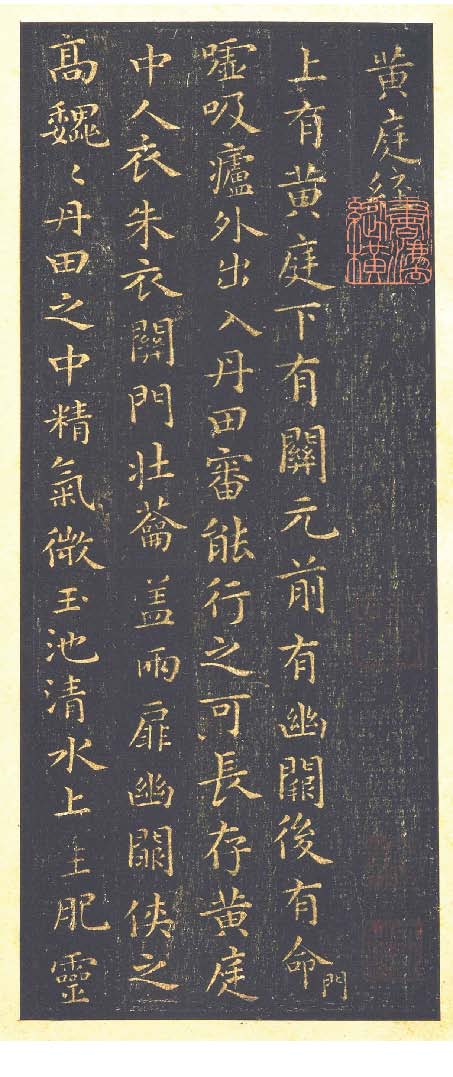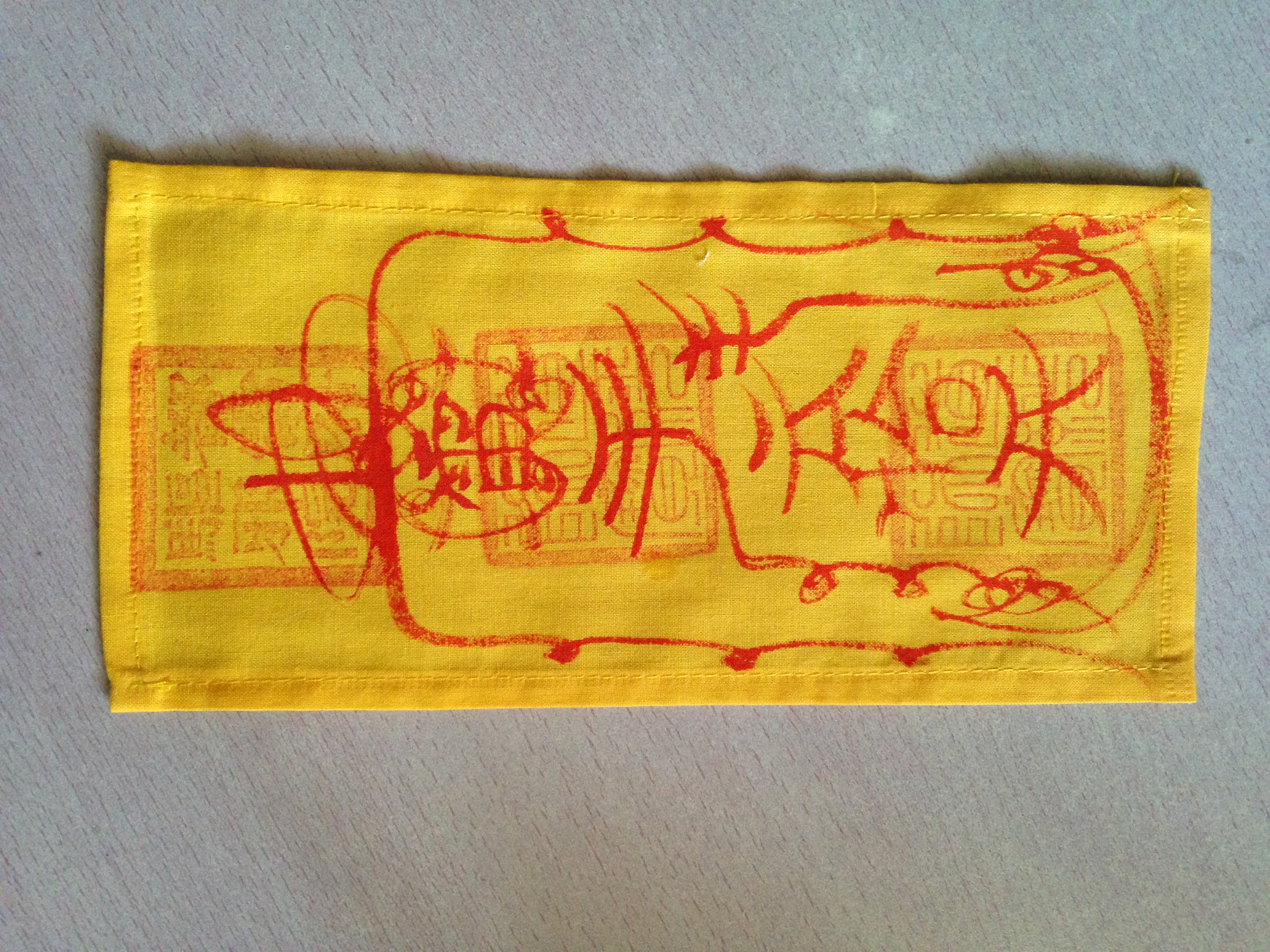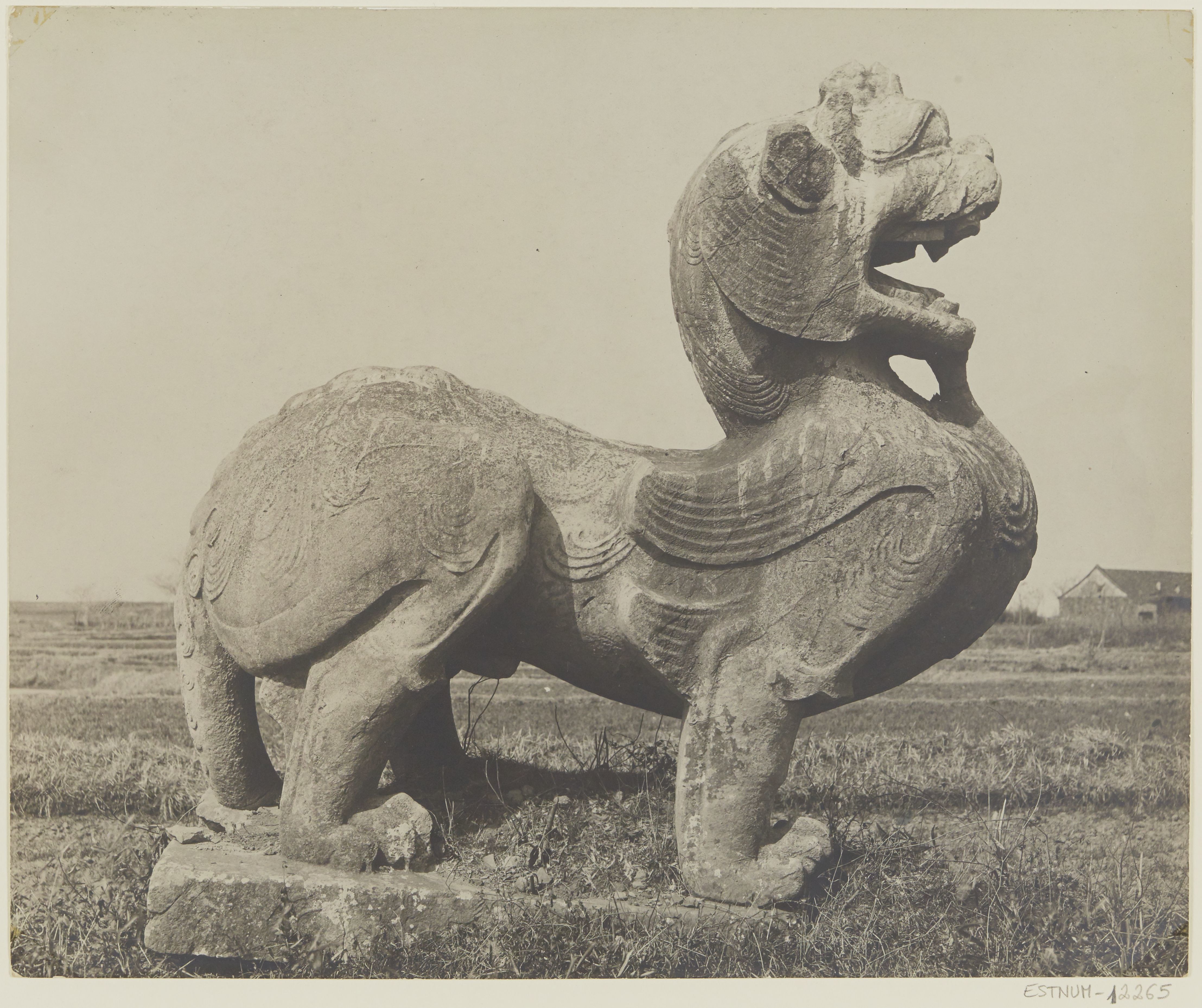|
Tao Hongjing
Tao Hongjing (456–536), courtesy name Tongming, was a Chinese alchemist, astronomer, calligrapher, military general, musician, physician, and pharmacologist, and writer during the Northern and Southern dynasties (420–589). A polymathic individual of many talents, he was best known as a founder of the Shangqing "Highest Clarity" School of Taoism and the compiler-editor of the basic Shangqing scriptures. Biography There are a variety of sources about Tao Hongjing's life, from his own writings to biographies in the official Twenty-Four Histories. The British sinologist Lionel Giles said Tao's "versatility was amazing: scholar, philosopher, calligraphist, musician, alchemist, pharmacologist, astronomer, he may be regarded as the Chinese counterpart of Leonardo da Vinci". Secular life Tao Hongjing was born in Moling (秣陵, present-day Jiangning District, Nanjing, Jiangsu), which was near the Northern and Southern dynasties period capital Jiankang (present-day Nanjing). His fa ... [...More Info...] [...Related Items...] OR: [Wikipedia] [Google] [Baidu] |
Tao (surname)
Tao is the pinyin romanization of the Chinese surname (''Táo''). It listed 31st in the Song-era ''Hundred Family Surnames'' poem. Tào is also a Vietnamese surname derived from the Chinese surname Cao (Chữ Nôm: ). Origin Various Chinese Tao family from; *Qi (surname) (祁) *Public Officer of Zhou Dynasty *Miao people *Tujia people, Blang people, Yao people, Yi people, Dai people of Minority Group * Mongolian *Tuoheluo, Tuqin, Tuokuer family of Liaoning *Xibe people Romanization Tao was romanized T'ao under the Wade-Giles system, although it was common to omit the apostrophe. It is romanized To, Tou and Tow in Cantonese; Tô in Minnan; Tau, Tow in Teochew; and Tháu in Gan. The Vietnamese surname formerly written as in Chữ Nôm is now written Đào; the Korean surname formerly written as in Hanja is now written and romanized Do; the same surname in Kanji is romanized Tō in Japanese. Distribution Tao was the 82nd-most-common surname in mainland China, but it w ... [...More Info...] [...Related Items...] OR: [Wikipedia] [Google] [Baidu] |
Jintan District
Jintan District is a district under the administration of Changzhou in the Jiangsu province of the People's Republic of China. History Jintan, known as Jinshan () in ancient times, was a township of Yanling commandery since the reign of the Emperor Yuan of Jin. Then it was promoted by its inhabitants as Jinshan county to strengthen the local vigilance in the late Sui dynasty, without permission. As a densely populated area, the county was reestablished in about 688 under the Tang dynasty, but since there was a namesake in present-day Jinhua, Zhejiang, it was named after Jintan, a hill of Mao Mountain. Location On November 10, 1993, Jintan was reclassified from a county and officially became a city. In 1987, the County comprised 22 towns, with the county government located in Jincheng town. The county was part of Changzhou, Jiangsu province. Jintan has a total area of 976.7 square kilometers (301.65 sq mi). The total land area is 781.27 square kilometers (301.65 sq mi), and wa ... [...More Info...] [...Related Items...] OR: [Wikipedia] [Google] [Baidu] |
Maoshan
The Shangqing School (Chinese:上清派), also known as Supreme Clarity or Highest Clarity is a Taoist movement that began during the aristocracy of the Western Jin dynasty. Shangqing can be translated as either 'Supreme Clarity' or 'Highest Clarity.' The first leader of the school was a lady, Wei Huacun (251-334). According to her Shangqing hagiographers, her devotion to Taoist cultivation so impressed a number of immortals that she received revelations from them - 31 volumes of Taoist scriptures, which would become the foundation of Shangqing Taoism. Later, Tao Hongjing, a man, (Chinese: 陶弘景) (456-536) structured the theory and practice and compiled the Taoist Canon. He greatly contributed to the development of the school that took place near the end of the 5th century. The mountain near Nanjing where Tao Hongjing had his retreat, Maoshan (茅山 – fr), today remains the principal seat of the school. Shangqing practice values meditation techniques of visualization and ... [...More Info...] [...Related Items...] OR: [Wikipedia] [Google] [Baidu] |
Vision (spirituality)
A vision is something seen in a dream, trance, or religious ecstasy, especially a supernatural appearance that usually conveys a revelation. Visions generally have more clarity than dreams, but traditionally fewer psychological connotations. Visions are known to emerge from spiritual traditions and could provide a lens into human nature and reality. Prophecy is often associated with visions. Categories Evelyn Underhill distinguishes and categorizes three types of visions: # Intellectual Visions – The Catholic dictionary defines these as supernatural knowledge in which the mind receives an extraordinary grasp of some revealed truth without the aid of sensible impressions and mystics describe them as intuitions that leave a deep impression. # Imaginary – In Teresa of Avila's ''The Interior Castle'', an imaginary vision is defined as one where nothing is seen or heard by the senses of seeing or hearing, but where the same impression is received that would be produced upon ... [...More Info...] [...Related Items...] OR: [Wikipedia] [Google] [Baidu] |
Yang Xi (mystic)
Yang Xi (楊羲, 330-c. 386), courtesy name Xihe (羲和, a mythological solar deity), was an Eastern Jin dynasty scholar, calligrapher, and mystic, who is best known for the "Shangqing revelations" that were purportedly dictated to him by Taoist deities between 364 and 370. The Taoist polymath Tao Hongjing subsequently compiled and redacted Yang's revealed texts into the c. 499 '' Zhen'gao'' (真誥, Declarations of the Perfected) compendium, which formed the foundations of the Shangqing School of Taoism. Life The life of Yang Xi was closely intertwined with the aristocratic Xu (許) family in Jurong, Jiangsu. He was employed as the in-house medium/shaman and spiritual advisor when the Perfected Ones directed Yang to transmit the revelation manuscripts to Xu Mi (許謐), an official in the court of Emperor Ai of Jin, and his son Xu Hui (許翽). The sinologist Isabelle Robinet stresses that Yang Xi was a mystic or a visionary, as opposed to a medium. Contrasting a simple med ... [...More Info...] [...Related Items...] OR: [Wikipedia] [Google] [Baidu] |
Fulu
(), is a term for Taoist incantations and magic symbols, written or painted as talisman or () by Taoist practitioners. These practitioners are also called () or the sect, an informal group made up of priests from different schools of Taoism. These charms and amulets are also not confined strictly to Taoism as they have been incorporated in to certain forms of Chinese Buddhism, and have descendants such as the of Japanese Buddhism and Shinto. Etymology * (), or () are instructions to deities and spirits, symbols for exorcism, and medicinal potion recipes or charms to assist with ailments. * () is a register of the membership of the priests, as well as the skills they are trained in. Other names for in English include Taoist magic writing, magic script characters, magic figures, magic formulas, secret talismanic writing, and talismanic characters. General design Fu symbols tend to have irregular strokes that resemble Traditional Chinese characters, often elon ... [...More Info...] [...Related Items...] OR: [Wikipedia] [Google] [Baidu] |
Lingbao School
The Lingbao School (), also known as the School of the Sacred Jewel or the School of Numinous Treasure, was an important Taoist School that emerged in China in between the Jin dynasty and the Liu Song dynasty in the early fifth century CE. It lasted for about two hundred years until it was absorbed into the Shangqing School and Zhengyi School currents during the Tang dynasty. The Lingbao School is a synthesis of religious ideas based on Shangqing texts, the rituals of the Celestial Masters, and Buddhist practices. The Lingbao School adopted many concepts from Buddhism, including the concept of rebirth, and also some cosmological elements. Although rebirth was an important concept in the Lingbao School, the earlier Taoist belief in attaining immortality remained. The school's pantheon is similar to Shangqing and Celestial Master Taoism, with one of its most important deities being the deified form of Laozi. Other deities also existed, some of whom were in charge of preparing spi ... [...More Info...] [...Related Items...] OR: [Wikipedia] [Google] [Baidu] |
Lu Xiujing
Lu Xiujing (; 406–477), known by the courtesy name Yuande (元德) and the posthumous name Jianji (簡寂), was a Taoist compiler and ritualist who lived under the Liu Song dynasty. His education was of Confucianist leaning. Nevertheless, he chose to study Taoism. Lu was devoted to his faith to the point of abandoning his family. During his pilgrimages to the various mountains where eminent Taoists had lived, Lu had the chance to collect the scriptures of various currents. His most important accomplishments are his edition of the Lingbao texts and his compilation of the first Taoist Canon. The structure of the canon, called "Three Caverns", will be used from the Tang dynasty onward. When he was working on the Lingbao compendium, Lu helped structure and expand the already complex set of rituals. Although Lu attributed a lot of importance to the rituals, he put them in second position in the Taoist Canon, that is in the second cavern. Lu was eloquent and hard-working, and he pl ... [...More Info...] [...Related Items...] OR: [Wikipedia] [Google] [Baidu] |
Emperor Wu Of Southern Qi
Emperor Wu of Southern Qi (南齊武帝) (440– 27 August 493), personal name Xiao Ze (蕭賾), courtesy name Xuanyuan (宣遠), childhood name Long'er (龍兒), was the second emperor of the Chinese Southern Qi dynasty. He is generally considered to be an able and diligent emperor, although he is also criticized for leading a lavish lifestyle. Background Xiao Ze was born in the Liu Song capital Jiankang in 440, when his father Xiao Daocheng was just 13 years old. He was the oldest son of his father, and his mother Liu Zhirong was Xiao Daocheng's wife. By 466, when Xiao Daocheng was a Liu Song general, Xiao Ze was a county magistrate at Gan County (贛縣, in modern Ganzhou, Jiangsi), when he was stuck in the civil war between Emperor Ming, whose claim his father Xiao Daocheng supported, and Emperor Ming's nephew Liu Zixun, who also claimed the throne. Because of Xiao Daocheng's support for Emperor Ming, Xiao Ze, who was deep in the territory controlled by Liu Zixun, was ar ... [...More Info...] [...Related Items...] OR: [Wikipedia] [Google] [Baidu] |
Filial Mourning
Filial mourning () refers to a bureaucratic norm, practiced since the Han dynasty, whereby officials of the imperial government of China were obliged to resign their posts and return to their home upon the death of a parent or grandparent. Description The meaning of the phrase literally means 'to encounter worries/loss', i.e. bereavement. Once used to refer to all forms of mourning for one's parents, it evolved in meaning to refer only to the practice of officials resigning their posts for mourning. The roots of the practice lie in the Confucianist focus on filial piety as a key virtue of government, and thus was instituted during the Western Han dynasty, when Confucianism first became the official ideology of the empire. During the mourning period, banqueting, marriage, official activities and participation in the Imperial Examinations are all proscribed. The length of the mourning period is nominally three years, though in practice it has been described as being between twenty-f ... [...More Info...] [...Related Items...] OR: [Wikipedia] [Google] [Baidu] |
Emperor Gao Of Southern Qi
Emperor Gao of Southern Qi ((南)齊高帝; 427– 11 April 482According to Xiao Daocheng's biography in ''Book of Southern Qi'', he died aged 56 (by east Asian reckoning) on the ''renxu'' day of the 3rd month of the 4th year of the ''Jianyuan'' era of his reign. This corresponds to 11 Apr 482 on the Julian calendar. [(建元四年三月)壬戌,上崩於临光殿,年五十六。] ''Nan Qi Shu'', vol.02), personal name Xiao Daocheng (蕭道成), courtesy name Shaobo (紹伯), childhood name Doujiang (鬥將), was the founding Emperor of China, emperor of the Southern Qi, Southern Qi dynasty of China. He served as a general under the preceding dynasty Liu Song dynasty, Liu Song's Emperor Ming of Liu Song, Emperor Ming and Emperor Houfei of Liu Song, Emperor Houfei. In 477, fearful that the young, cruel Emperor Houfei would kill him, he assassinated Emperor Houfei and seized power, eventually taking the throne in 479 to start Southern Qi. Background Xiao Daocheng was born in 427 ... [...More Info...] [...Related Items...] OR: [Wikipedia] [Google] [Baidu] |
.jpg)





